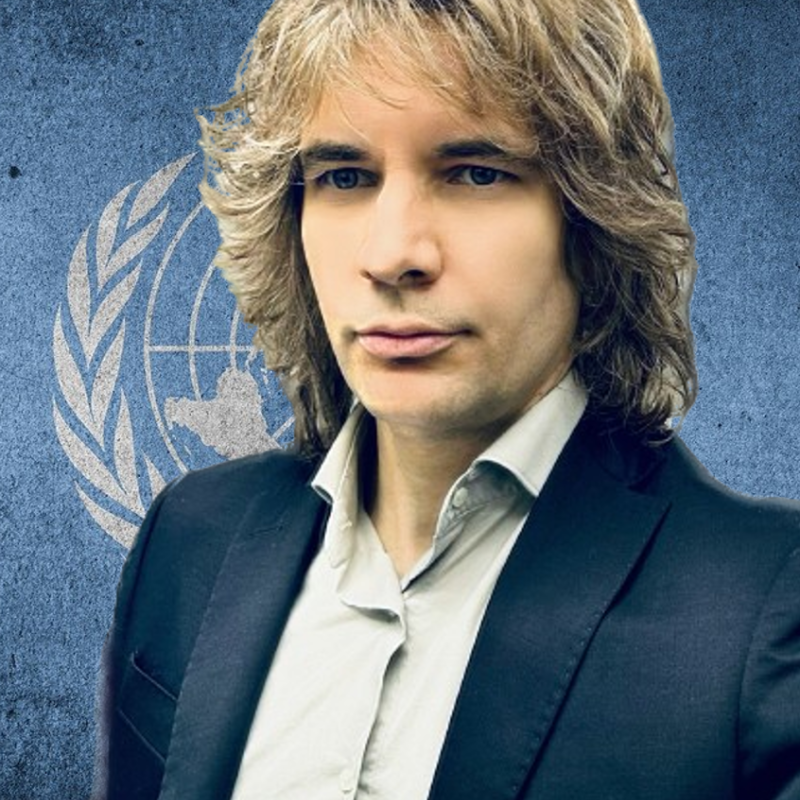Communication and knowledge management professional with over fifteen years of headquarters and field experience in the United Nations, specialized in conceptualizing, designing and supervising the execution of strategies, programmes, projects and campaigns to raise awareness of the UN’s development and emergency relief efforts in the Caribbean, Latin America, South-East Asia, the Near East, and North, South, East, West and Central Africa.
My contributions
Independence permeates our work, subsuming freedom and rigour, infusing impartiality, neutrality and unbiasedness into investigative methods, paving the way to useful, constructive and learning-oriented reports and recommendations. I ask myself, though, how does all this translate into communication products and outreach materials, in practical terms?
We need to be clear. There is an unsubtle difference between communicating independence and independently communicating. We, the niche of evaluation communication specialists, may be tweeting about the latest report that our evaluation office has published, sharing excerpts on social media, and cross-posting soundbites across blogs, podcasts and the like. Does this really mean
Have you ever noticed that beneficiaries always tend to be smiling on the front cover of development reports? I sometimes wonder how realistic this is. From a communications perspective, it certainly paints a nice picture. Is it the right one, though? I guess the answer depends largely on the report’s target audience – or, otherwise stated, on its intended purpose. The intended purpose of an evaluation report is usually very clear, insofar as it stems from the principles that guide the organization’s evaluation processes. In the case of IFAD, for instance, the guiding principles of the Independent Office of Evaluation

Alexander Voccia
Coordinator, Evaluation Communication Unit International Fund for Agricultural DevelopmentDear Paul,
Thank you for raising this very important point and for opening this interesting discussion thread.
Based on my experience, I fully agree that Knowledge Management (KM) and Communications are both critical to Evaluations, especially (albeit not only) vis-à-vis the uptake of lessons learned and best practices.
The Independent Office of Evaluation (IOE) of IFAD – which I have recently joined – has explicitly acknowledged these synergies. Moreover, IOE’s Evaluation Manual highlights that “dissemination to facilitate the sharing of lessons and uptake of recommendations [is] important and is much about identifying tools and platforms to facilitate sharing” (IFAD, 2015, p.118). Case in point, it is communications and KM that foster the development of “feedback loops from evaluation to policy makers, operational staff and the general public” (IFAD, 2016, p.6).
In response to the above, IOE has developed a robust communications and KM strategy, tailored to reflect its specific needs and resources. The Evaluation Communication Unit (ECU) implements this strategy, including through the production and dissemination of communication products and the facilitation of learning events. As an integral component of IOE, the ECU works in close coordination with evaluators and substantive experts to help ensure that the independent information contained in IOE’s reports is widely disseminated and, in addition, that this information is instrumental in triggering virtuous learning feedback cycles. While opportunities for improvement always exist, the results documented thus far through this synergistic approach to evaluations, KM and communication have been very encouraging (IFAD, 2019, p.28; IFAD, 2016, p.10; IFAD, 2015, p.119).
Reflecting on my previous professional experiences, whilst working with UN/DESA in New York and UN/ECLAC in Port of Spain I found that both entities recognized the importance of the relationship between KM and communications, to the point that I eventually found myself coordinating both the outreach Unit and KM centre in ECLAC. However, the mandates of neither of these Units foresaw any direct interaction with evaluation offices.
Instead, I am pleased to say that the linkages between communications and evaluations were strong in the KM project that I developed and coordinated whilst working for the UN World Food Programme (WFP), back in 2004. For example, as part of the KM project, we developed an after action review methodology for field-based operations, which not only greatly benefitted from evaluation-based inputs, but which was also field-tested and refined in collaboration with experts from the office of evaluations.
Drawing from all the above, I observe the synergies between KM, communications and evaluations to be strongest in those organizations that have a field-centred, project-based nature, as opposed to those whose primary purpose is to facilitate, support and build capacity in areas related to policy making. I do not know how generalizable a similar conclusion may be, and I am thus very curious to know how it might relate to the experiences of other colleagues. I look forward to continued discussion on this topic.
Kind regards,
Alexander
References
IFAD (2015). Evaluation Manual. Second edition. Independent Office of Evaluation, IFAD. Rome.
IFAD (2016). Overview of the Independent Office of Evaluation of IFAD. Independent Office of Evaluation, IFAD. Rome.
IFAD (2019). Helping Transform Rural Lives. Major achievements of IFAD’s Independent Office of Evaluation: 2014-2019. Independent Office of Evaluation, IFAD.